If it’s January, it’s Davos-time — that is the annual meeting of the World Economic Forum convening global experts and passionistas focused on big ideas and challenges facing us mere humans living on Planet Earth.
Parallel with the WEF is the annual publication of the 2024 Edelman Trust Barometer, now in its 24th year, focusing on global citizens’ concerns that unite people around the world. For the 2024 study, Edelman’s team fielded the survey in November 2023, collecting input from over 32,000 people living in 28 countries. About 1,150 interviews (plus or minus) were done in each nation which included the countries of Argentina, Australia, Brazil, Canada, China, Colombia, France, Germany, India, Indonesia, Ireland, Italy, Japan, Kenya, Malaysia, Mexico, Netherlands, Nigeria, Saudi Arabia, Singapore, S. Africa, S. Korea, Spain, Sweden, Thailand, UAE, the U.K., and the U.S.
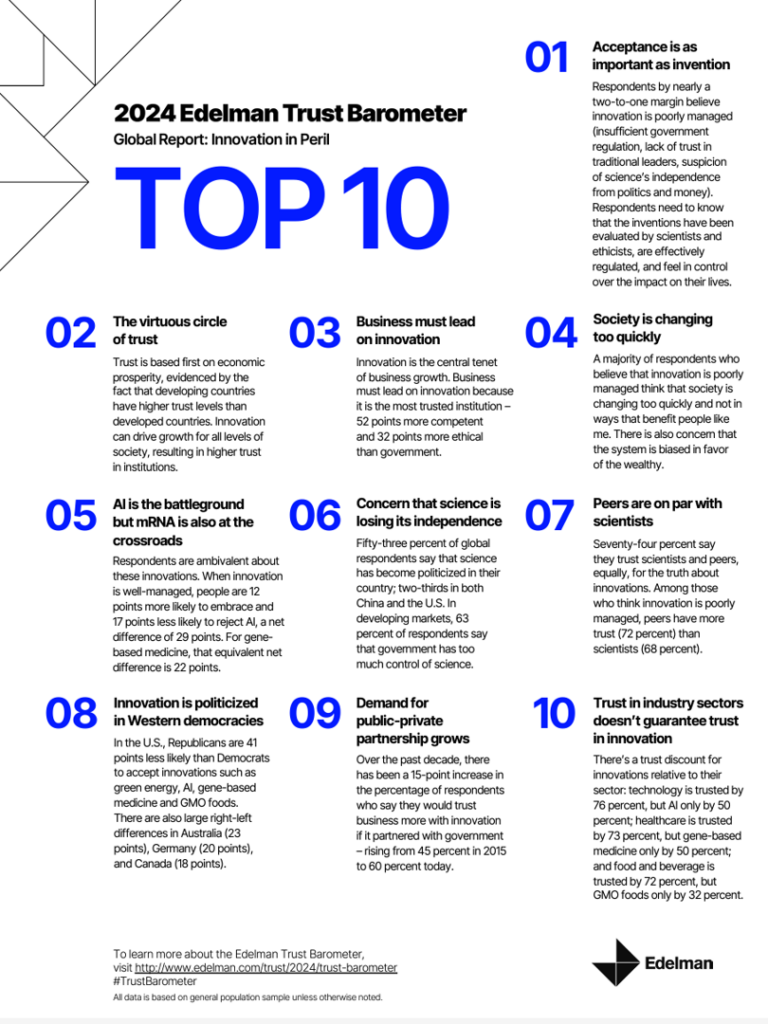
The top-line theme from the study is “Innovation in Peril,” with a plotline beginning with the virtuous cycle of trust which in the current moment is challenged by AI and three other innovations on which the study focuses: green energy, gene-based medicine, and genetically modified foods (GMO foods). The Top 10 findings are summarized in the first infographic.
We you peruse the Top 10, you can appreciate many layers to the issue of trust in health, healthcare, and science-research supporting health/care innovations.
While there is demand for public-private partnerships — hugely important and impactful for health/care innovation — there continues to be eroding trust in the public-government sector, observed in the past decade+ by Edelman’s research.
Another key data point is that scientists now rank on-par with peoples’ peers: 74% of global citizens trust scientists and peers equally concerning the truth about innovation.
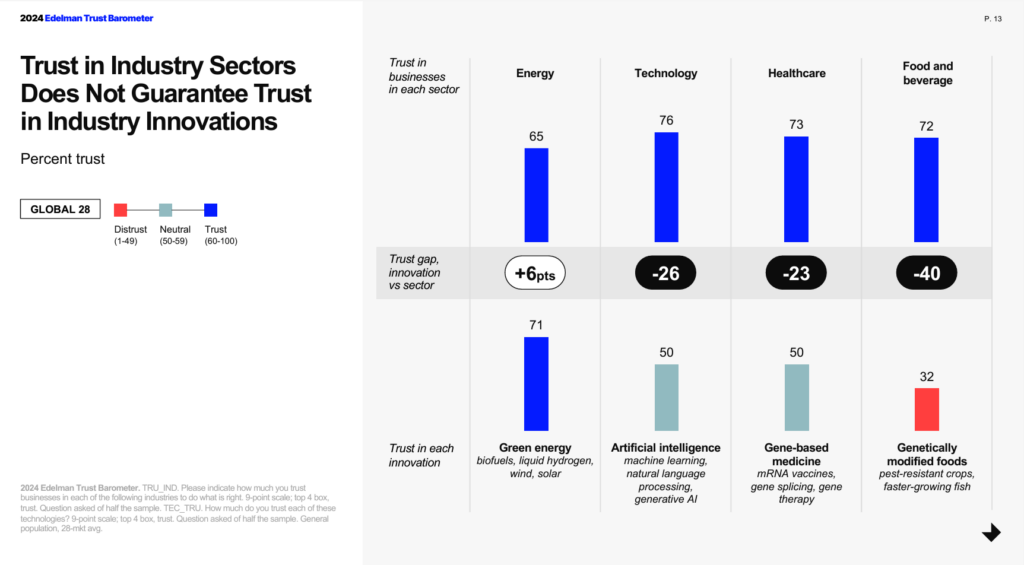
Furthermore, trust in an industry sector — such as health care — does not ensure that consumers trust the innovations coming out of that sector. The second chart illustrates an aspect of this phenomenon: while 73 percent of global citizens across the 28 countries polled trust the health care business sector, there is still a trust gap of 23 points. And only 50% of global citizens trust gene-based medicines, such as those emerging from mRNA vaccines, gene splicing, and gene therapy.
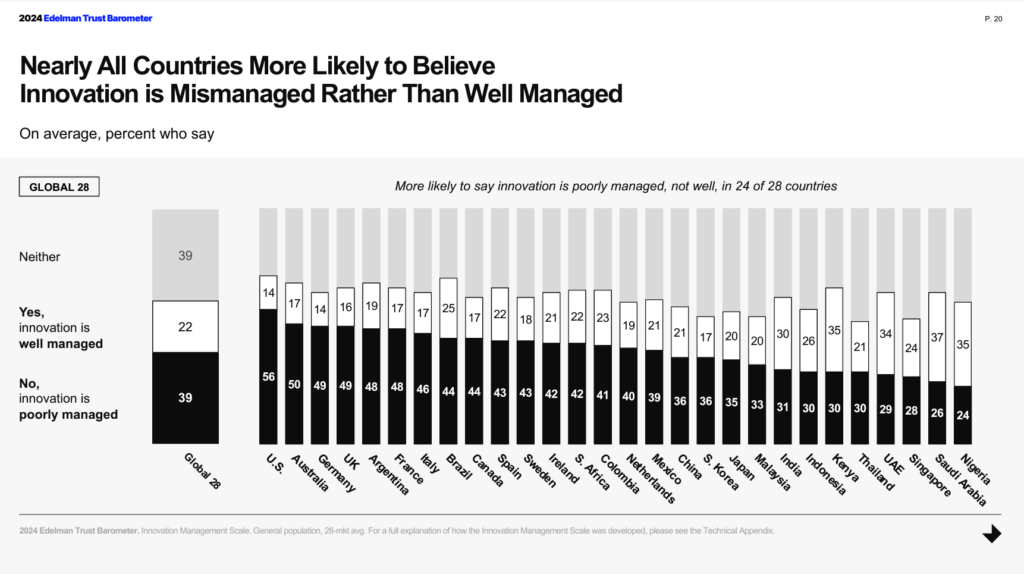
One particular statistics stands out for the U.S. in this first global report on the 2024 Edelman Trust Barometer: that is that most Americans (56%) versus people from other countries were more likely to say innovation was poorly managed. The countries just behind the U.S. on trust in innovation management were Australia, Germany, the U.L, Argentina, and France, where roughly one-half of residents were likely to say innovation was poorly managed in their country.
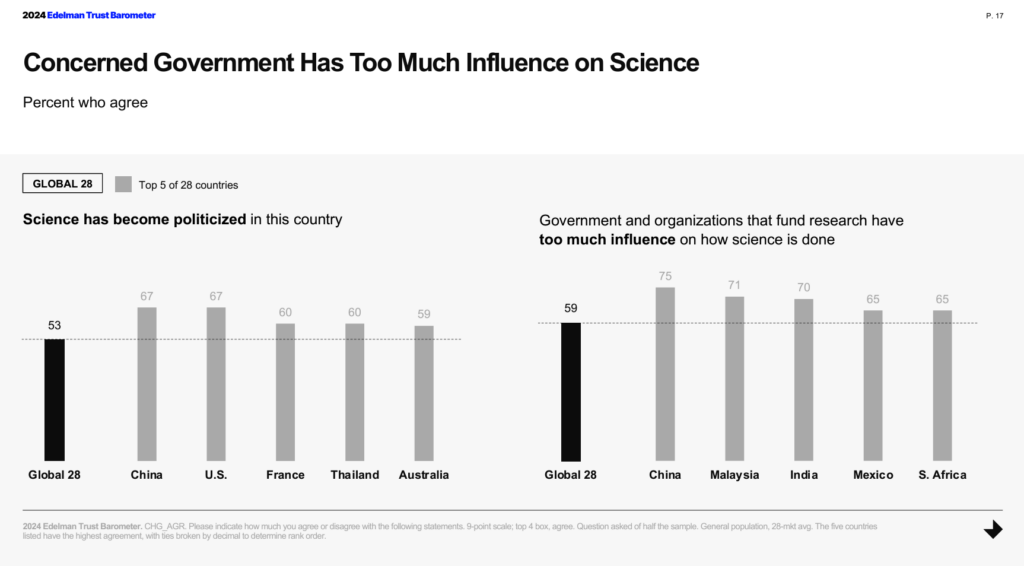
The U.S. also tops other countries (tied with China) on the issue of politicized science. Two in three Chinese and U.S. citizens believe that science has become politicized in their country.
There are many more findings for you to review in the global report found here.
Stay tuned for more insights from Edelman’s 2024 Trust research as the company published different cuts of the data through this year — with my own deep engagement on data that focuses on the health care sector in the U.S. and globally.
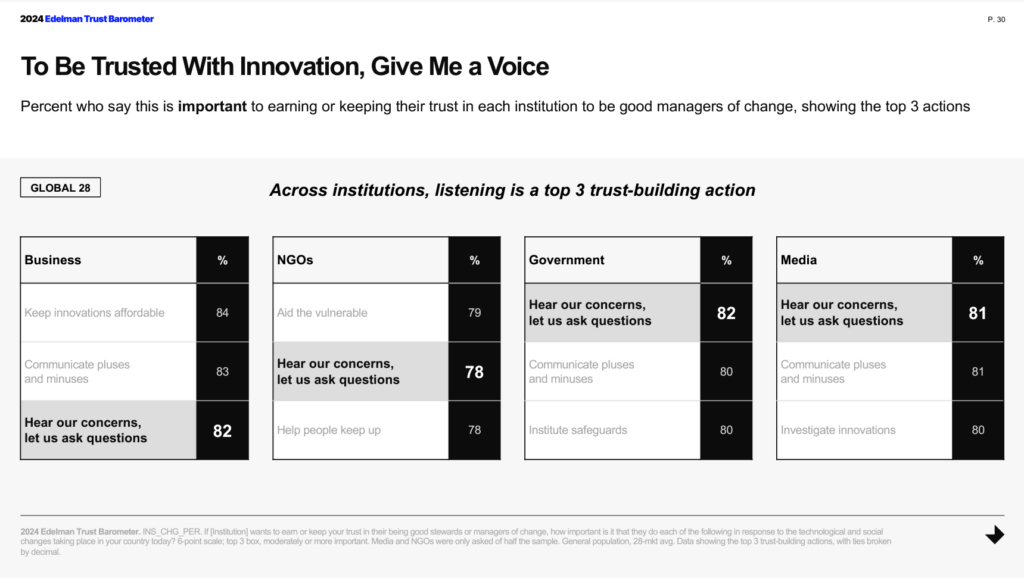
Health Populi’s Hot Points: How to restore citizens’ trust in innovations?
The Edelman team observes that people want their voices to be heard by the four key stakeholder groups involved in innovation: about 4 in 5 citizens say that listening is a top 3 trust-building action whether by government, business, media, or NGOs.
For business, keeping innovations affordable and being transparent about the innovations’ “pluses and minuses” slightly outrank hearing peoples’ concerns; and for NGOs, supporting vulnerable populations is a top trust builder, as well.
Most citizens globally are also looking to government to institute safeguards for innovations’ unintended negative consequences or biases.
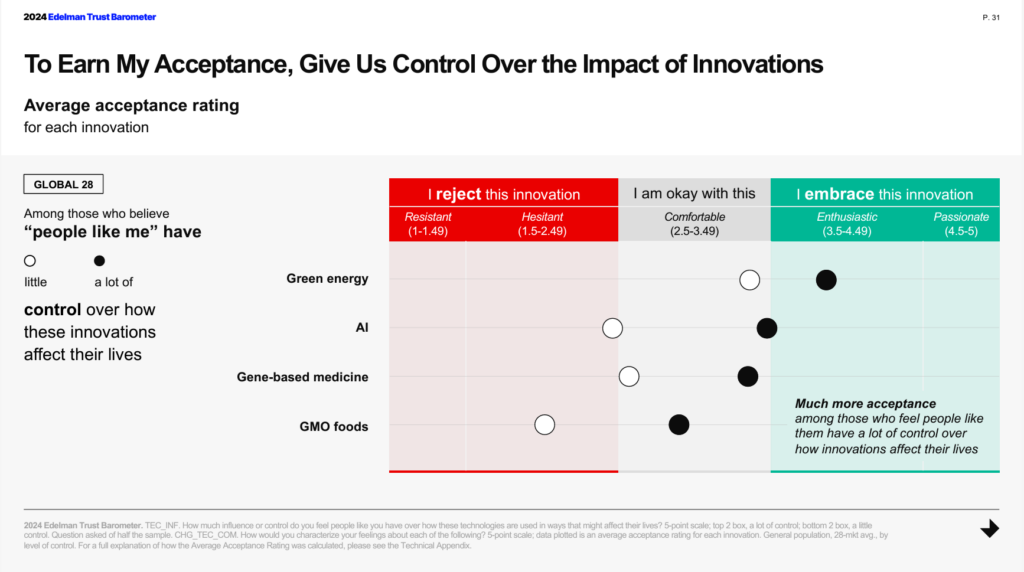
Finally, to earn peoples’ acceptance, citizens are looking to have some control over innovations’ impacts. Among citizens with higher acceptance ratings for innovations, people tend to feel they have a lot of control over that innovation — led by green energy, then AI, gene-based medicine, and GMO foods.
Check out the last chart for an important nuance here regarding AI and gene-based medicine: note the sort of “leapfrog” these two innovations make when a citizen feels a lot of control over those two innovations (the black dots on the right side of the chart) compared with the white dots for AI and gene-meds representing people who feel little control over the innovations.
I’m looking forward to exploring these concepts more as the Edelman team continues to publish more findings through 2024 that relate to health empowerment and health citizenship.


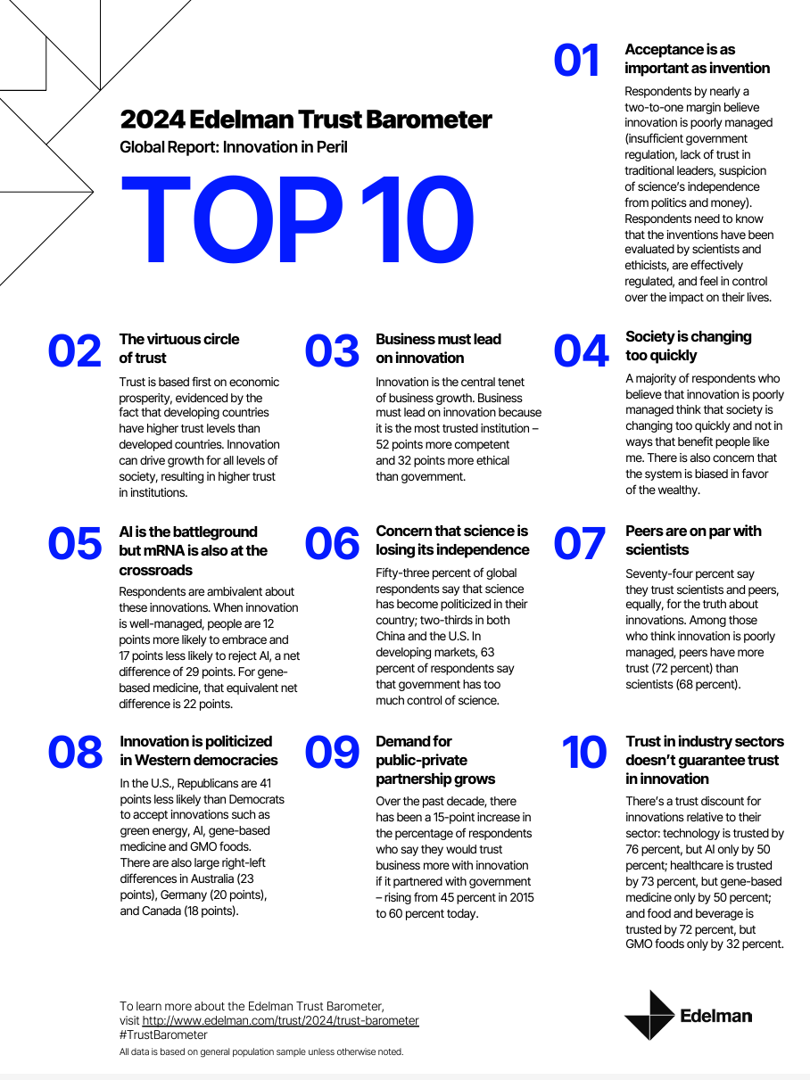


 I love sharing perspectives on what's shaping the future of health care, and appreciate the opportunity to be collaborating once again with Duke Corporate Education and a global client on 6th May. We'll be addressing some key pillars to consider in scenario planning such as growing consumerism in health care, technology (from AI to telehealth), climate change, and trust -- the key enabler for health engagement or dis-engagement and mis-information. I'm grateful to be affiliated with the corporate education provider
I love sharing perspectives on what's shaping the future of health care, and appreciate the opportunity to be collaborating once again with Duke Corporate Education and a global client on 6th May. We'll be addressing some key pillars to consider in scenario planning such as growing consumerism in health care, technology (from AI to telehealth), climate change, and trust -- the key enabler for health engagement or dis-engagement and mis-information. I'm grateful to be affiliated with the corporate education provider  Thank you FeedSpot for
Thank you FeedSpot for